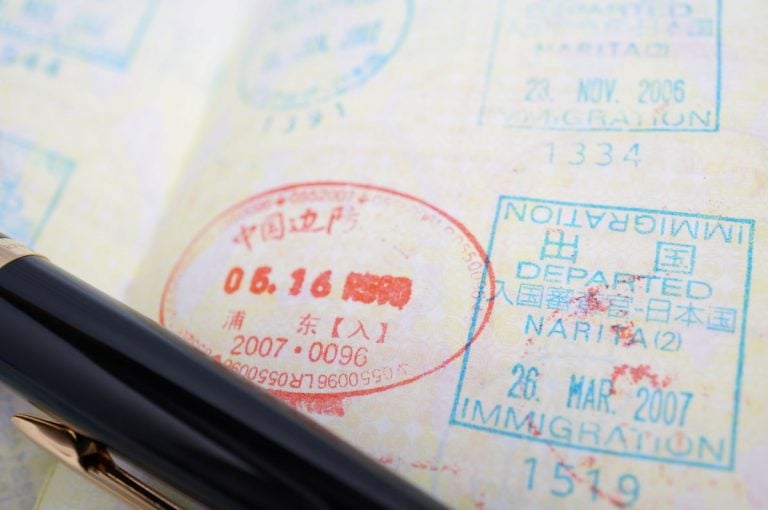
Are your skills in demand in Japan? If you’re looking for a job in Japan, you will obviously be in need of a visa as well. There are currently three major types of working visas that you can apply for. Applying for the visa that best fits your working situation will ensure that you receive the best privileges and conditions during your life abroad. Let’s look at the three types of working visas Japan has to offer.
Commonly Required Documents
There are a few documents that are going to be required of every applicant seeking a working visa in Japan. We’ll take a quick look at each, as well as how you can secure them, before covering the types of working visas.
Certificate of Eligibility – 在留資格認定証明書 (zairyuu shikaku nintei shoumeisho)
A Certificate of Eligibility is required by the Japanese Immigration Bureau for almost every type of visa application. The document certifies that you have confirmed your desired visa status, your nationality, and any Japanese connections or sponsors you have to act as guarantors for your visa. While the information you will be asked to provide varies depending on the type of visa for which you are applying, you will always be asked to provide your date of birth, marital status, and other personal information. An application for this form can be filled out by you or a proxy, but it will be among the first orders of business for securing a visa.
Point Calculation Form (For Highly-Skilled Professionals Only)
In 2012, the Japanese government introduced a point-based system that would offer preferential treatment to working professionals with skills that might bolster Japan’s economy. If you are applying for this visa, you will need to include a form tallying your points based on the system. The tricky part is that there is no set form for tallying points (although the Immigration Bureau does provide an example). You will have to create your own using the language and qualification lists provided by the bureau.
These points typically rely on your age, your degree, the type of skill you possess and your proficiency in that skill, and of course, your Japanese language ability. It’s important to be aware that for every point you list on your form, you will be required to provide proof.
Current Photo
Every visa application will require a photo taken within the past three months. This will be the photo that goes on your official residence card, so it must conform with Japanese ID photo standards. It can be no larger or smaller than 4cm x 3cm (1.5” x 1.2”), and if you’re mailing it to the Immigration Bureau, it must have your name written on the back.
Be sure to keep a blank background and that you are fully facing the camera. There is a full list of specifications on the Immigration Bureau’s website.
Basic Working Visa
The majority of applicants seeking employment in Japan will fall under the Working Visa. This visa covers roles including (but not limited to):
- Religious Activities (missionaries, etc.)
- Instructor
- Artist
- Business Manager
- Legal/Accounting Services
- Medical Services
- Nursing Care
- Entertainer
- Engineer
- Technical Trainee
A basic Working Visa lasts anywhere from 1 to 3 years; it is up to your visa sponsor to select the amount of time they wish to request. Anyone with a college degree and a company or organization willing to sponsor them may apply for a Working Visa. The application can be done from within Japan (if you are transitioning from a Student Visa, for example), or from your home country at the nearest embassy.
Requirements
In order to apply for a Working Visa, you will need:
- A valid passport
- A Certificate of Eligibility *It can take between 4-6 weeks to receive this if you are applying for it from outside of Japan
- A recent photograph
- Curriculum vitae
- Copies of any degrees you hold
- A visa application form
- A letter from your sponsor, including the position you will be taking and your expected salary
If you are applying from outside of Japan, your visa will be given to you upon arrival. You will receive a residence card, or 在留カード (zairyuu kaado) with your visa status listed on it. You are legally required to carry your residence card at all times.
Specified Skill Visa (SSV)
The Specified Skill Visa, or SSV, is a recent addition. As Japan’s population continues to age, there is a growing labor shortage. The SSV was introduced in order to bring skilled labor into Japan from abroad. There is currently only one type of Specified Skill Visa, which is valid for 5 years. A second type was originally planned to be introduced in the spring of 2021, but the current coronavirus situation might make this timeline subject to change.
In contrast to other working visas, the SSV does not require a college degree. So long as your skills fit the industries included in this visa and you have no criminal record, you can apply. There are some concerns with this visa, which we will cover when we look at the two types in more detail.
The industries covered by the SSV are:
- Agriculture
- Maintenance (airport, aircraft, vehicle)
- Building cleaning and construction
- Food & Beverage
- Hospitality
- Processing of materials
- Industrial machinery
- Nursing care
- Restaurants/Catering
- Shipbuilding
Requirements
Both types of the SSV require a JLPT N4-equivalent level of Japanese (around 160 kanji and a basic comprehension of daily Japanese conversation). All applicants must pass a Japanese test called the Japan Foundation Japanese Basic Test in addition to proving they are proficient in their skill. Applicants who are not from Asian countries will have to prove their Japanese language ability using the JLPT or similar tests.
Once the Japanese language test has been taken, applicants must fill out some typical visa application forms including a Certificate of Eligibility and a visa application. Upon finishing the paperwork, they will be able to travel to Japan and attend initial training at their organization.
SSV Type 1 vs. SSV Type 2
The Specified Skills Visa currently only has one type, but the Japanese government has already announced plans to introduce a second type of the visa. The current type, SSV Type 1—特定技能1号 (tokutei ginou ichigou) in Japanese—is valid for only five years, with limited renewals depending on the applicant’s trade. The problem with the current SSV visa is that it does not allow the applicant to bring family members over to Japan with them. Perhaps it is this fact on conjunction with poor preparation on both sides, that has thus far led to few workers seeking the new visa status.
Before the pandemic moved in to change plans around the world, the Japanese government had unveiled plans for an upgrade to the new visa. The Specified Skills Visa Type 2, or 特定技能2号 (tokutei ginou nigou), will allow for infinite renewals and the possibility of upgrading to permanent resident status. Visa holders will be permitted to bring their families into Japan as well. Type 1 holders will be able to upgrade their visa status, although the government has not yet clarified what the requirements will be for doing so.
Highly Skilled Professional Visa
The Japanese government introduced this visa in 2012, hoping to bring skilled professionals into the country. This visa requires a certain number of “points,” which are awarded based on the applicant’s age, Japanese language ability, and skills. In general, the Highly Skilled Professional Visa is available to:
- Advanced academic researchers – Academics who will research (or guide research) or monitor education at a private or public Japanese organization
- Advanced technical workers – Professionals specializing in natural sciences or humanities employed by a private or public Japanese organization
- Advanced business managers – Professionals who will manage or oversee a private or public Japanese organization
So long as you are planning to work for a Japanese company or organization and possess the skills that will earn you enough points, you can apply for this visa.
There are two tiers of the Highly Skilled Professional Visa, both of which offer tempting benefits. For example, the applicant has permission for multiple activities (meaning you can work more than one job at a time), permission for your spouse to work, a stay of at least five years, and preferential processing for entry or re-entry into Japan.
Requirements
To begin applying for a HSP Visa, it’s important you understand the point system. We recommend first tallying your points and collecting any documentation that supports your tallied score (i.e., college and grad school degrees, JLPT certification, etc.). In addition to this, you’ll need:
- A Certificate of Eligibility (you will need the original document and a copy)
- A valid passport
- A recent photo
- Your visa application
Tiers
The tiers of the HSP Visa are dependent on the length of your work and stay in Japan. Every applicant will begin with the HSP Type 1 Visa, which grants the benefits listed above. Once you have lived in Japan for three years, you may upgrade your HSP Visa to the Type 2, which grants an indefinite stay in Japan. One thing to be aware of is that this visa is reliant on your continued employment under your sponsor; if you should change employers, you will also have to change visas.
Conclusion
There are several options for working visas if you plan to start a career in Japan. The requirements for each may vary depending on your country, so be sure to check the Japanese Ministry of Foreign Affairs website if you have any questions. Japan is a great place to start a new career. If you’re still looking for work, check out Jobs in Japan for jobs opportunities, mock interviews, and more!
Written by Erin Himeno.















